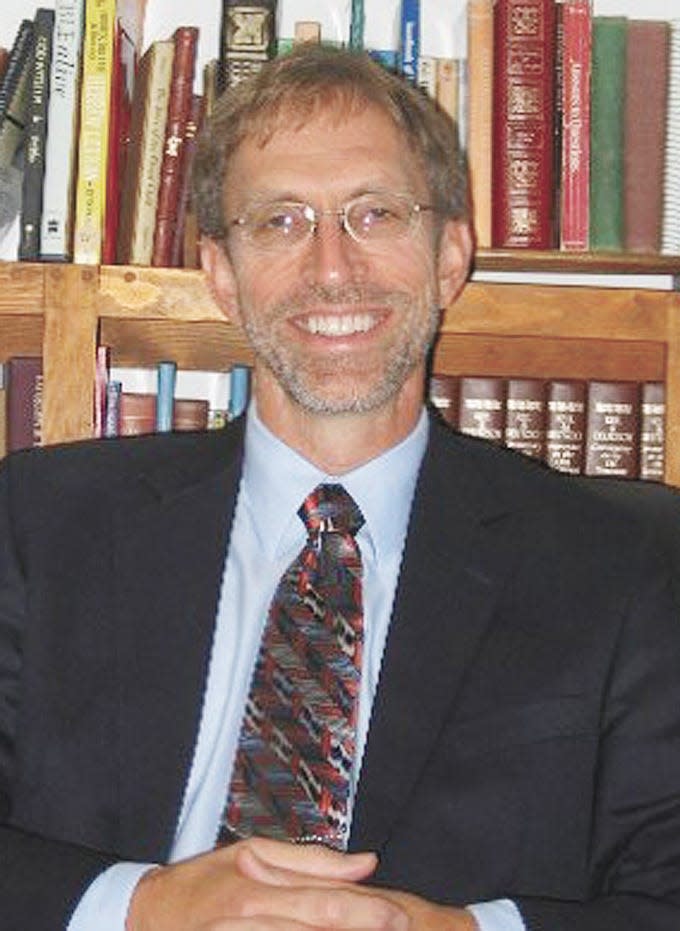Shayne Looper: A biblical model for handling church conflicts
Anyone who has been around the church for any length of time has heard about church fights and church splits. Christians, it seems, are not much better than anyone else when it comes to handling conflict. They might even be worse.
The history of church conflicts is a very old one. It begins only a few short years after the birth of the church. The Evangelist St. Luke tells the fascinating story in his history of the early church, which we know as the Book of Acts.
At the time of the events in Acts 6, the church was headquartered in Jerusalem and comprised of Jewish people who had recognized Jesus as the Messiah. The church had not yet gone out to the world, but the world had come to the church. The growing and vibrant congregation in Jerusalem was comprised of both Aramaic and Greek-speaking Jewish believers.

One of the things that characterized the early church and made it attractive to outsiders was the way it cared for its poor, especially its widows. From the earliest time, the church kept a list of widows who qualified for financial and food assistance.
Being a widow in the first century Middle East was very different from being a widow in America in the era of Social Security. There was no safety net for widows, nor were there any jobs. Work options for women were extremely limited: doing wealthy people’s laundry or prostitution. Because the husband was usually the only bread winner, when he died there might be no more bread.
But in the church, widows were supported. If they lacked financial resources, they were placed on the widow’s list, which qualified them to receive food on a daily basis.
That is the backstory to the conflict in Acts 6. The Aramaic-speaking widows, the locals who were from Jerusalem, were receiving a daily allotment of food while the Hellenistic widows, who were Greek-speaking transplants to Jerusalem, were being overlooked. This caused the Hellenistic church members to complain that they were being treated unfairly.
Most of the church conflicts I have heard about over the years were like this one. They were not theological in nature. They didn’t begin because someone denied the truths of the Athanasian Creed but because a church member was slighted, or at least felt that way. Conflicts happen because people’s feelings are hurt, their views disregarded, their needs unmet.
These things happen in every group of people, including the church. It is naïve to think otherwise. Jesus as much as promised that this would be the case. He once said, “It is impossible that no offenses should come…” When they do come, as is inevitable, what we do next is what is important.
It is worth noting that in the early church, when the Hellenistic Jews were offended and lodged a complaint, the church’s leaders listened to the complaint and acknowledged its validity. They did not call what had happened a misunderstanding nor hire a lawyer to write a wordy apology that meant nothing.
Instead, the apostles brought the entire church together and said, in effect: “We have a problem. It is more than we alone can handle. So, let’s put together a team who will be able to make this right.”
The conflict became the starting point for an entirely new set of leaders in the church, people we refer to today as “deacons.” The apostles did not dictate how these new leaders should handle the problem; they merely set the standards for what kind of leaders were needed, let the church choose them, and then let them go to work.
One moral to this story is that church conflicts need not diminish the church. They can be the source of innovations and growth. We see this in Acts 6. After the church, with its new set of enthusiastic and spirited leaders, dealt with the conflict, the church was united, “the word of God spread,” and “the number of disciples increased rapidly.”
As a pastor, church conflicts always worried and disheartened me. Yet, conflicts can provide an opportunity for positive change, fresh insight, and growth if they are handled with faith in God and love for others.
— Shayne Looper is a writer and speaker based in Coldwater, Michigan. Contact him at salooper57@gmail.com.
This article originally appeared on The Holland Sentinel: Shayne Looper: A biblical model for handling church conflicts

